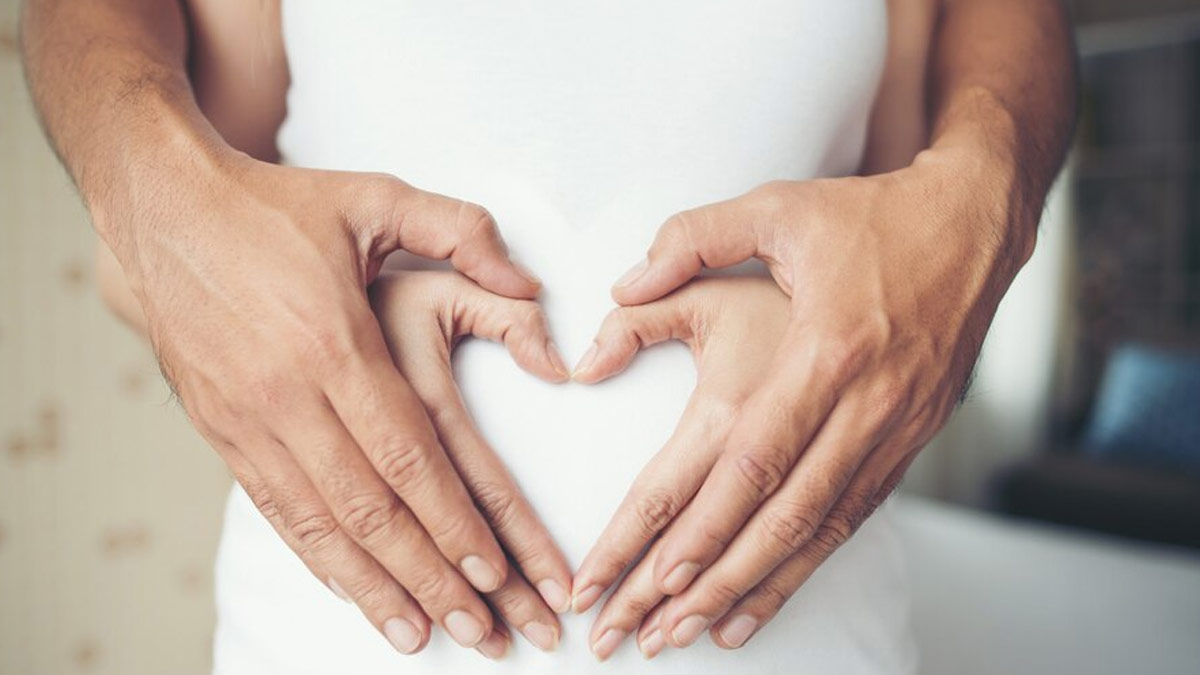
While pregnancy is a unique experience, it can cause various health challenges. One of the most common issues includes heart palpitations, often described as sensations of the heart fluttering, pounding, racing, skipping beats, or feeling like it's beating too hard or too fast. Some people may also feel like their hearts are "flip-flopping" or having extra beats, Dr Neema Sharma, Director and Unit Head-Obstetrics and Gynaecology, Fortis Hospital, Vasant Kunj, tells the OnlyMyHealth team.
Table of Content:-
It is important to note that heart palpitations are a symptom that indicates an underlying condition. In pregnant women, it can signal other health complications that may need a doctor’s supervision. Here are some of the common causes of heart palpitations in pregnant women and ways to manage them.
Also Read: What Are The Causes Of Heartburn During Pregnancy? Know How To Treat It From An Expert
What Causes Heart Palpitations In Pregnant Women?

During pregnancy, the heart rate of women increases by 25%, according to a 2007 study published in the journal Heart. This can lead to occasional heart palpitations.
Heart palpitations can feel different for different people, says Dr Sharma, adding that the experience can vary in intensity and duration.
"Some individuals may only notice them occasionally, while others may experience them frequently or even continuously," she shares. Depending on the underlying causes, the condition can be managed effectively.
When it comes to pregnant women, some of the common causes of heart palpitations include:
Increase in blood volume: During pregnancy, a woman's blood volume increases to support the growing foetus. This increased blood volume can cause the heart to beat faster, leading to palpitations.
Hormonal changes: Pregnancy is accompanied by significant hormonal changes, including increased levels of hormones like progesterone. These hormonal shifts can affect the cardiovascular system and may contribute to palpitations.
Changes in the heart's electrical system: The heart's electrical system plays a vital role in controlling the heart rate and rhythm. This can lead to irregular heartbeats or palpitations. These changes are typically benign but can be concerning for some women.
Emotional factors: Pregnancy can be a time of heightened emotions, anxiety, and stress, which can also trigger palpitations in some women.
Anaemia: Pregnant women are at an increased risk of developing anaemia, which occurs when there's a shortage of Red Blood Cells (RBCs) to carry oxygen to the body's tissues. Anaemia can lead to palpitations as the heart works harder to compensate for the reduced oxygen-carrying capacity of the blood.
How To Manage Heart Palpitations During Pregnancy?

While heart palpitations during pregnancy can be unsettling, depending on the underlying causes, they can be managed with appropriate steps.
- Dehydration can exacerbate heart palpitations, so make sure you're drinking enough water throughout the day.
- Maintain a balanced diet rich in fruits, vegetables, whole grains, and lean proteins.
- Avoid large meals and spicy foods that might trigger palpitations.
- Limit your intake of caffeine and other stimulants, such as nicotine, as they can increase your heart rate and contribute to palpitations.
- Make sure you're getting enough sleep and rest, as fatigue can worsen palpitations.
- Engage in activities that help reduce stress, such as meditation, deep breathing exercises, prenatal yoga, or listening to calming music.
- Poor posture can put extra strain on your heart and exacerbate palpitations. Sit and stand up straight to alleviate unnecessary pressure on your cardiovascular system.
- While it's important to stay active during pregnancy, avoid overexertion and intense physical activities.
- Tight clothing, especially around the waist and chest area, can constrict blood flow and exacerbate palpitations. Opt for loose, comfortable clothing.
Conclusion
Heart palpitations are common among pregnant women. Factors such as hormonal changes, increased blood volume, and increased stress levels can all contribute to it. However, depending on the cause, effective steps can be taken to manage pregnancy-related heart palpitations. As an individual, it is important to stay hydrated, limit caffeine and alcohol intake, indulge in regular physical activity, and also get ample rest at the same time. Do not compromise on your diet, and avoid large meals. Most importantly, stay in touch with your healthcare provider.
Also watch this video
How we keep this article up to date:
We work with experts and keep a close eye on the latest in health and wellness. Whenever there is a new research or helpful information, we update our articles with accurate and useful advice.
Current Version